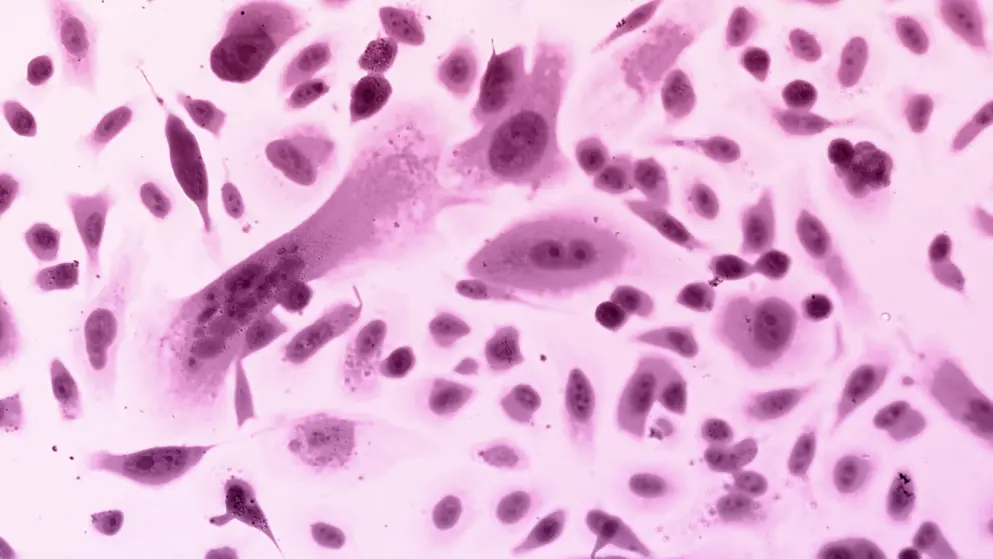
Phase III Trial Terminated for Prostate Cancer
The Phase III ARANOTE trial, investigating darolutamide plus ADT in patients with metastatic hormone-sensitive prostate cancer (mHSPC), has met its primary endpoint of rPFS.(radiological progression-free survival)
Darolutamide plus ADT significantly increased rPFS compared to placebo plus ADT. The safety data were comparable between both treatment arms and reconfirm the established tolerability profile of darolutamide in advanced prostate cancer.
Darolutamide is already approved under the brand name Nubeqa for the treatment of patients with non-metastatic castration-resistant prostate cancer (nmCRPC), who are at high risk of developing metastatic disease, and patients with mHSPC (in combination with ADT and docetaxel).
“We are excited to share the positive results from this Phase III trial. Following potential regulatory approval, physicians can tailor treatment plans with or without docetaxel based on individual patient´s needs” said Christian Rommel, Ph.D., Head of Research and Development at Bayer’s Pharmaceuticals Division. “Today’s results build on the established efficacy and tolerability profile for Nubeqa. We are looking forward to future outcomes of our clinical development program investigating the compound across multiple prostate cancer stages and indications.”
Detailed results of the ARANOTE trial are planned to be presented at a forthcoming scientific congress. Bayer plans to submit the data from the study to relevant health authorities globally to support expanded use of darolutamide in men with mHSPC. ARANOTE is part of a robust clinical development program investigating darolutamide across various stages of prostate cancer, which includes the Phase III ARASTEP trial evaluating darolutamide plus ADT versus ADT alone in hormone-sensitive high-risk biochemical recurrence (BCR) prostate cancer, who have no evidence of metastatic disease by conventional imaging and a positive PSMA PET/CT at baseline. Furthermore, darolutamide is also being investigated in the collaborative Phase III DASL-HiCaP (ANZUP1801) trial led by the Australian and New Zealand Urogenital and Prostate Cancer Trials Group (ANZUP). The study evaluates darolutamide as an adjuvant treatment for localized prostate cancer with very high risk of recurrence.
About the ARANOTE Trial:The ARANOTE trial is a randomized, double-blind, placebo-controlled Phase III study designed to assess the efficacy and safety of darolutamide plus ADT in patients with mHSPC. 669 patients were randomized to receive 600mg of darolutamide twice daily or matching placebo in addition to ADT. The primary endpoint of this study is rPFS, measured as time from randomization to date of first documented radiological progressive disease or death due to any cause, whichever occurs first. Secondary endpoints include overall survival (time to death from any cause), time to first castration-resistant event, time to initiation of subsequent anti-cancer therapy, time to prostate-specific antigen (PSA) progression, PSA undetectable rates, time to pain progression, and safety assessments.
Darolutamide is an oral ARi with a distinct chemical structure that binds to the androgen receptor with high affinity and exhibits strong antagonistic activity, thereby inhibiting the receptor function and the growth of prostate cancer cells. The low potential for blood-brain barrier penetration for darolutamide is supported by preclinical models and neuroimaging data in healthy humans. This is also supported by the overall low incidence of central nervous system (CNS)-related adverse events (AEs) compared to placebo as seen in the ARAMIS Phase III trial and the maintained verbal learning and memory observed in the darolutamide arm of the Phase II ODENZA trial.
Darolutamide is approved under the brand name Nubeqa in more than 85 countries around the world for the treatment of patients with non-metastatic castration-resistant prostate cancer (nmCRPC), who are at high risk of developing metastatic disease. It is also approved in combination with ADT and docetaxel for the treatment of patients with mHSPC in over 80 markets including the U.S., Japan, EU, and China. The product is developed jointly by Bayer and Orion Corporation, a globally operating Finnish pharmaceutical company.


